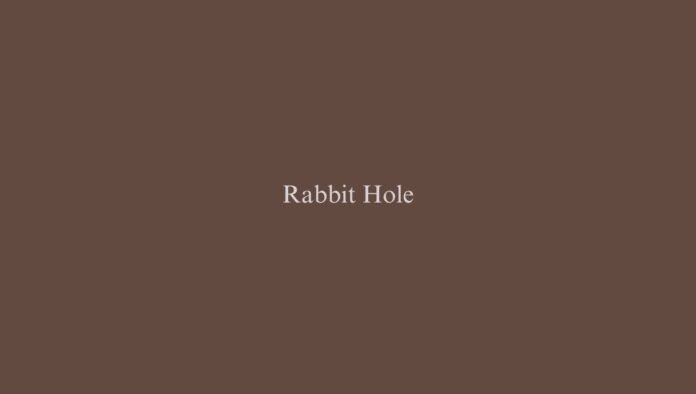The sudden death or disappearance of your young child.
A traumatic experience like this can lead parents, as you learn from the movies, to have a mental breakdown (What Dreams May Come), to take drugs to numb the pain in Minority Report or go after the perpetrator as the fathers did in Reservation Road and The Lovely Bones.
In the case of Rabbit Hole, the 2007 Pulitzer Prize-winning play directed by Tracey Pang, couple Becca (Janice Koh) and Howie (Adrian Pang) go through as they try to come to terms with the loss of their 4-year-old son, Danny.
The title springs from a short story that 17-year-old Jason (Eden Ang), responsible for running over and killing Danny, creates after the accident and dedicates to his victim. Central to Jason’s tale is the idea of the existence of alternate universes where other versions of himself and Becca are happy. Just as Alice was led to a fantasy Wonderland through a hole by a rabbit, these “rabbit holes” are the ways through to these parallel worlds.
The opening sees Becca engaging in a conversation with her sister Izzy, (Seong Hui Xuan) which reveals that Danny is dead and sets the generally depressing tone of the play. Seong’s New York accent, achieved with the help of an accent coach, comes off as a tad bit jarring. Her liveliness in her physicality, as seen when she demonstrates how she punched a lady while clubbing as well as her youthful tone of voice, also saved the production, given its theme, from getting overly depressing.
Actress Lok Meng Chue helped too in alleviating the generally bleak mood with her humorous portrayal of Nat, the speculation-obsessed mother of Izzy and Becca. The 2010 winner of the Straits Times Life! Theatre awards for Best Supporting Actress quickened the pace of the play with her incessant and rapid-fire nagging about all the possible reasons and explanations for Danny’s death, which was all too familiar to the appreciative audience.
Not a single dry eye was in the house by the end of the first act, not even the manliest of people were spared as Adrian Pang’s explosion of grief and frustration when confronting Becca about her getting rid of traces of Danny kept the audience enraptured. Perhaps Adrian Pang’s sincerity in his role stems from his experience as a father of two young boys (to whom he dedicates Rabbit Hole). In a moment, there seemed to be no barrier between the audience and the stage, and that, among many others, demonstrated how the strength of the script coupled with the Adrian Pang’s intensity and Janice Koh’s complexity makes the piece perfectly captivating (imagine Adrian Pang’s steady character erupting) and emotionally gripping.
Janice Koh’s portrayal of Becca is reminiscent of her performance in television series Fighting Spiders, where she acted as a sickly mother constantly worried about her two sons, and surprisingly different from her current Channel 5 legal drama The Pupil, where she plays a steely, ambitious lawyer. The winner of the coveted Life! Theatre Award for Best Actress in 2003 captures the audience with her authentic and touching performance of a mother putting on a strong front whilst struggling to cope with the loss of her child, especially touching when she tries to console her mother who gets upset when going through Danny’s toys.
Held at the DBS Arts Centre, the play was perfectly suited for the cosy, 300-seater venue. Set designer Philip Engleheart, who has had 30 years of experience, including designing the set for Shakespeare’s Much Ado About Nothing at the Shakespeare’s Festival in Neuss, Germany, takes on a minimalistic approach in his design for Rabbit Hole, with a simple, yet cleverly and aesthetically-built set. One particular feature of the set, an elevated platform which is covered by a screen that conceals what used to be Danny’s room, is particularly intriguing, due to the fact that the room behind the screen is only made visible in the second half of the play.
The lighting design by James Tan was also notable and served to embellish, as was seen in a scene where the contrasting moods of Howie and Becca were highlighted and matched by the colours that lit the where they were standing.
The second half of the play focuses on progressions in Becca and Howie’s coming to terms with their grief. Howie stops going for his focus group sessions, they try to sell their house, and clear out Danny’s previously untouched room in the process. Conversations become less and less about Danny’s death, and the audience is also given a further look into the idea that brought about the title of the play. Becca has a conversation with Jason about the story he has written, and tries to make him understand that they do not hold him accountable for Danny’s death.
Not only is the play powerfully stirring and relevant to anyone who’s experienced the loss of a loved one, the human-ness of the play—the delicate sense of hope and redemption from grief—is imparted by the careful crafting of the production and performance of the actors. Jason’s act of requesting to dedicate his story to Danny’s memory so as to overcome his sense of guilt is something we can all relate too, when trying to find a way to make up for mistakes.
There’s so much more to Rabbit Hole that’s better discovered through watching rather than reading it, and so many things—including Howie and Becca’s progression through the same stages of grief in their own way—make this play deserving of its Pulitzer Prize. This is definitely a play that should not be missed, and maybe even one worth watching twice.
Rabbit Hole runs till May 12, with ticket prices starting at $35 at SISTIC.

